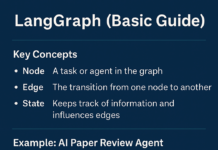Qualitative research is a crucial part of understanding the human experience and behavior. There are various tools available to conduct qualitative research effectively.
In the dynamic landscape of research, the tools we employ can significantly impact the depth and quality of our investigations.
When it comes to qualitative research, having the right tools at your disposal can make the process smoother, more efficient, and yield more insightful results.
In this blog post, we will explore the best six qualitative research tools that researchers can leverage to enhance their analytical capabilities.
Here are six qualitative research tools that can be useful for academic researchers:
No. #1 NVivo: Navigating Complexity with Precision
NVivo is a robust qualitative data analysis tool, designed to help researchers organize, analyze, and glean profound insights from various data sources.
NVivo is the most influential and frequently referenced software for analyzing qualitative data
With its advanced coding capabilities, it stands as a cornerstone for those navigating intricate qualitative landscapes.
The analysis tool offers a blend of qualitative and quantitative analysis capabilities. Specifically, it has the ability to calculate inter-coder reliability and employ cluster analysis to investigate similarities in text or coding.
The robust application can import citations from EndNote, Mendeley, Zotero, Citavi, or alternative bibliographic management software.
NViVo can be accessed on both Windows and Macintosh operating systems.
No #2 MAXQDA: Bridging Qualitative and Mixed-Methods Research
MAXQDA is a versatile tool that seamlessly supports both qualitative and mixed-methods research. It offers features like multimedia integration and advanced coding. MAXQDA empowers researchers to delve into comprehensive data interpretation across various research methodologies.
MAXDQ enables you to simplify your data analysis through automatic transcription, robust analytical tools, user-friendly interfaces, and intelligent AI integration.
AI Assist streamlines your tasks by autonomously examining and summarizing aspects of your research project, leveraging the capabilities of OpenAI
No #3 HyperRESEARCH: Intuitive Coding for Everyone
HyperRESEARCH prides itself on being an intuitive and user-friendly qualitative analysis tool. Its simplicity makes it an excellent choice for those entering the realm of qualitative research, providing a straightforward approach to coding and analysis.
The tool is designed to simplify the coding process in qualitative research. Researchers find its straightforward interface helpful for coding text, images, audio, and video data.
The software allows for easy retrieval and comparison of coded segments, aiding in a more efficient analysis process.
No #4 Quirkos: Visualizing Patterns for Insightful Analysis
Quirkos takes a visual and intuitive approach to qualitative data analysis. Its unique bubble-mapping feature allows researchers to easily identify patterns and relationships within their data, offering a fresh perspective on qualitative analysis.
No #5 Atlas.ti: Mastering In-Depth Textual Analysis
Atlas.ti specializes in textual analysis, providing researchers with the tools to explore large volumes of text, identify patterns, and extract meaningful themes.
With a user-friendly interface and powerful visualization capabilities, Atlas.ti simplifies the complex task of uncovering insights from qualitative textual data.
Conclusion
In the realm of qualitative research, the importance of using the right tools cannot be overstated. The six tools mentioned—NVivo, MAXQDA, HyperRESEARCH, Quirkos, and Atlas.ti—each bring unique strengths to the table.
Whether you prioritize collaborative features, intuitive interfaces, or robust data handling capabilities, there is a tool tailored to meet your specific needs.
These cutting-edge tools can help researchers to analyze qualitative data more efficiently and effectively, and produce better research outcomes.
The right qualitative research tool can open up a new level of understanding and insight, and researchers should consider these options to improve their work quality and depth














